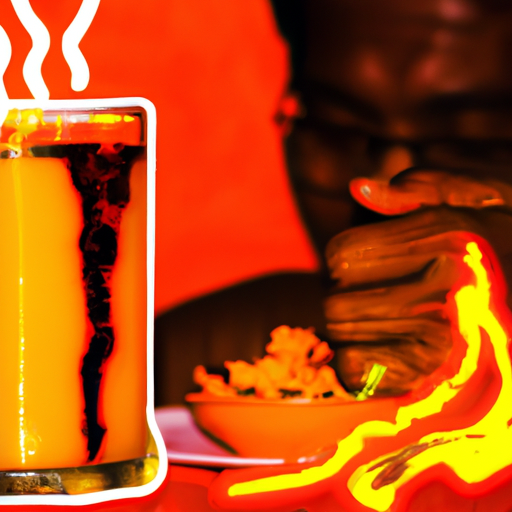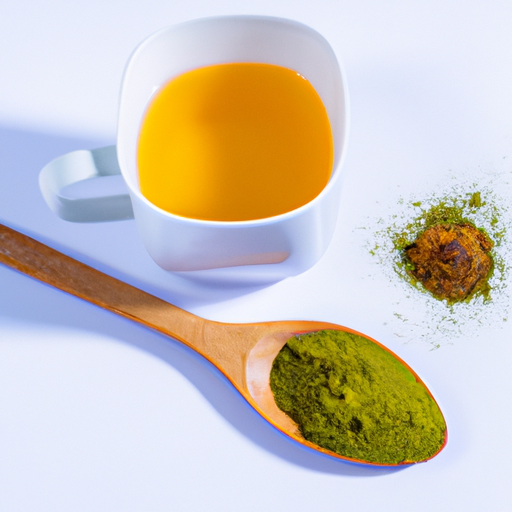As a practitioner of intermittent fasting, I am constantly seeking ways to improve my fasting journey. A common question that arises is if certain foods or spices can disrupt a fast.
One spice that I have been curious about is pepper. Does adding pepper to my meal during my fasting window have any impact on my fast? In this article, I will explore the potential impact of pepper on fasting.
I will examine the nutritional profile of pepper, discuss any potential effects on the body during a fast, and review any existing research on the topic. By the end of this article, you will have a better understanding of whether or not pepper can break a fast and how it may affect your fasting experience.
Key Takeaways
- Pepper, specifically black pepper, can be consumed during the fasting period as it has negligible calories.
- Consuming large amounts of pepper may cause gastrointestinal discomfort, especially on an empty stomach.
- Alternatives to pepper that offer similar benefits include ginger, cinnamon, and turmeric.
- The decision to consume pepper during fasting periods is up to personal preferences, and it is important to listen to your body and monitor how it responds to pepper during fasting.
Understanding Intermittent Fasting
If you’re intermittent fasting, it’s important to understand that certain foods won’t break your fast. Intermittent fasting has become a popular method of weight loss and improving overall health. It involves restricting your food intake for a certain period of time, usually between 12 to 16 hours, and consuming all your calories within a specific time frame.
There are several benefits of intermittent fasting, such as reducing insulin resistance, improving heart health, and reducing inflammation. There are different popular fasting methods, such as the 16/8 method, where you fast for 16 hours and consume all your calories within an 8-hour window.
During the fasting period, you can consume water, coffee, tea, and other non-caloric beverages. Herbs and spices, such as pepper, can also be consumed during the fasting period, as they have negligible calories. Understanding which foods won’t break your fast is essential to ensure that you are getting the maximum benefits of intermittent fasting.
In the subsequent section, we’ll discuss the nutritional profile of pepper and how it can be beneficial during intermittent fasting.
The Nutritional Profile of Pepper
You’ll be surprised to learn about the hidden power of this fiery spice and how it can enhance your overall nutrition. Pepper, specifically black pepper, is a popular spice used in many culinary dishes. It’s not only a flavorful addition but also offers a variety of health benefits.
Pepper benefits include aiding digestion, promoting weight loss, and improving blood sugar control. Additionally, pepper contains compounds that have anti-inflammatory properties and may help reduce the risk of chronic diseases such as cancer and heart disease.
Cooking with pepper can be a simple way to boost the nutritional value of your meals and enhance your overall health.
Pepper’s impact on fasting is a topic of interest among many individuals who practice intermittent fasting.
Potential Impact of Pepper on Fasting
Pepper can potentially affect your fasting routine in terms of its impact on your body’s digestive system and metabolism. While pepper is known to have several health benefits, including anti-inflammatory properties and potential weight loss benefits, it can also have certain side effects that may affect your fast.
For example, pepper can increase stomach acid production, which can lead to heartburn and acid reflux, potentially disrupting your fast. Furthermore, pepper can also stimulate your appetite and increase your cravings for food, which can make fasting challenging. However, the impact of pepper on fasting may vary from person to person, and it’s essential to listen to your body and monitor how it responds to pepper during your fast.
That said, more research is needed to understand the potential benefits and side effects of consuming pepper during fasting. In the subsequent section about research on pepper and fasting, we’ll explore the existing evidence on how pepper may affect your fasting routine and its potential benefits and drawbacks.
Research on Pepper and Fasting
As I delved deeper into the potential impact of pepper on fasting, I came across several studies that looked at the effects of pepper on both animals and humans during fasting.
Animal studies have shown that pepper does not have a significant impact on fasting, while human studies have produced mixed results.
Overall, the evidence suggests that pepper does not break a fast, but it’s important to consider individual differences and consult with a healthcare professional before making any changes to your fasting routine.
Animal Studies
Researchers have found that when mice were given pepper during their fasting period, there was no significant impact on their overall metabolic rate. Animal research suggests that consuming pepper during fasting may not have any negative metabolic effects. However, it’s important to note that more research needs to be done to confirm these findings in humans.
Here are some interesting facts about the effects of pepper on fasting from animal studies:
- Pepper consumption during fasting did not cause any significant change in metabolic rate in mice.
- Pepper may have anti-inflammatory effects, which could potentially benefit individuals who are fasting.
- Some animal studies suggest that consuming pepper may help regulate blood sugar levels, which could be beneficial during fasting periods.
- The active compound in pepper, piperine, has been shown to have potential anticancer effects in animal studies.
Moving on to human studies, it’s important to further investigate the effects of pepper consumption during fasting.
Human Studies
It’s crucial to examine the impact of consuming spices during fasting on human subjects. Human research studies have been conducted to determine whether consuming spices like pepper would break a fast.
Clinical trials conducted in healthy adults have shown that consuming spices like pepper does not have a significant impact on fasting. However, it is important to note that the impact of consuming spices during fasting may vary depending on individual factors such as age, sex, and health status.
One study conducted on healthy adults found that consuming black pepper did not have a significant impact on fasting glucose levels or insulin levels. Another study conducted on overweight adults also found that consuming black pepper did not significantly affect blood glucose levels or insulin levels during fasting. These findings suggest that consuming pepper during fasting may not have a significant impact on metabolic markers in healthy individuals.
However, more research is needed to determine the impact of consuming spices during fasting in individuals with health conditions.
In summary of the findings, the current human research studies suggest that consuming spices like pepper during fasting may not have a significant impact on metabolic markers in healthy adults. However, additional research is needed to determine the impact on individuals with health conditions.
Summary of Findings
Get excited about the latest findings! Consuming spices during fasting may not have a significant impact on metabolic markers in healthy individuals. This is great news for those who practice intermittent fasting and want to enjoy the nutritional benefits of spices like pepper.
While there are limited studies on the topic, the available evidence suggests that consuming pepper during fasting does not affect insulin and glucose levels or alter fat oxidation in the body. Additionally, pepper is known to have anti-inflammatory and antioxidant properties, which can further enhance the benefits of fasting.
However, it’s important to note that consuming large amounts of pepper or other spices may cause gastrointestinal discomfort, especially on an empty stomach. Therefore, it’s best to consume spices in moderation during fasting and listen to your body’s response.
With this in mind, let’s move on to the final thoughts on pepper and fasting.
Final Thoughts on Pepper and Fasting
Let’s wrap up our discussion on the benefits of consuming spices during fasting, specifically focusing on the role of pepper. While there are conflicting opinions on whether pepper breaks a fast or not, it’s important to note that pepper does offer some benefits during fasting.
Pepper has been found to aid in digestion, increase metabolism, and reduce inflammation. These benefits can be especially useful during fasting periods when the body is undergoing significant changes and needs all the help it can get.
However, if you’re concerned about whether pepper will break your fast, there are alternatives to consider. Some spices that can offer similar benefits as pepper include ginger, cinnamon, and turmeric. These spices have been found to aid in digestion, reduce inflammation, and even regulate blood sugar levels.
Ultimately, the decision to consume pepper during fasting periods is up to you and your personal preferences. If you do choose to consume pepper, it’s important to do so in moderation and to consult with a healthcare professional if you have any concerns.
Frequently Asked Questions
How long should a fast last for optimal benefits?
In my experience, an optimal duration for a fast is around 16-18 hours. This has shown to provide numerous health benefits, including improved insulin sensitivity and weight loss. However, individual needs may vary and it’s important to consult with a healthcare professional.
Can other spices or seasonings break a fast?
When fasting, it’s common to hear myths about what can break a fast. However, consuming spices like pepper doesn’t break a fast. In fact, they can enhance the flavor of foods during your fasting period.
Can drinking water with lemon or apple cider vinegar break a fast?
Oh sure, drinking water with lemon or apple cider vinegar during a fast is a fantastic idea. Not only do they add a delicious flavor, but lemon water offers detoxifying benefits while apple cider vinegar can help regulate blood sugar levels. However, it’s important to note that both can break a fast due to their caloric content.
Is it safe to exercise during a fast?
Exercising during a fast can improve fat burning and insulin sensitivity. However, precautions should be taken, such as staying hydrated and avoiding high-intensity workouts. Consult a healthcare professional before beginning any exercise regimen during a fast.
Can fasting lead to long-term weight loss?
Long-term weight loss is possible through fasting, given its metabolic benefits. Sustainability is key, but it requires a balanced diet and exercise. Fasting alone isn’t a magic solution, but it can be a helpful tool in achieving weight loss goals.
Conclusion
In conclusion, after researching the potential impact of pepper on fasting, I’ve come to the realization that pepper doesn’t break a fast. The nutritional profile of pepper is relatively insignificant in terms of calories and macronutrients, making it a safe addition to a fasted state. Additionally, research on the subject hasn’t found any evidence to suggest that consuming pepper will disrupt the benefits of fasting.
As I reflect on my own personal journey with intermittent fasting, I’m reminded of the story of the tortoise and the hare. Just as the hare rushed ahead in his race, only to tire out and ultimately lose, it can be tempting to try to rush the process of fasting by adding unnecessary supplements or foods. However, like the tortoise, slow and steady wins the race.
By staying true to the principles of fasting and avoiding unnecessary distractions, we can reap the full benefits of this powerful practice.










